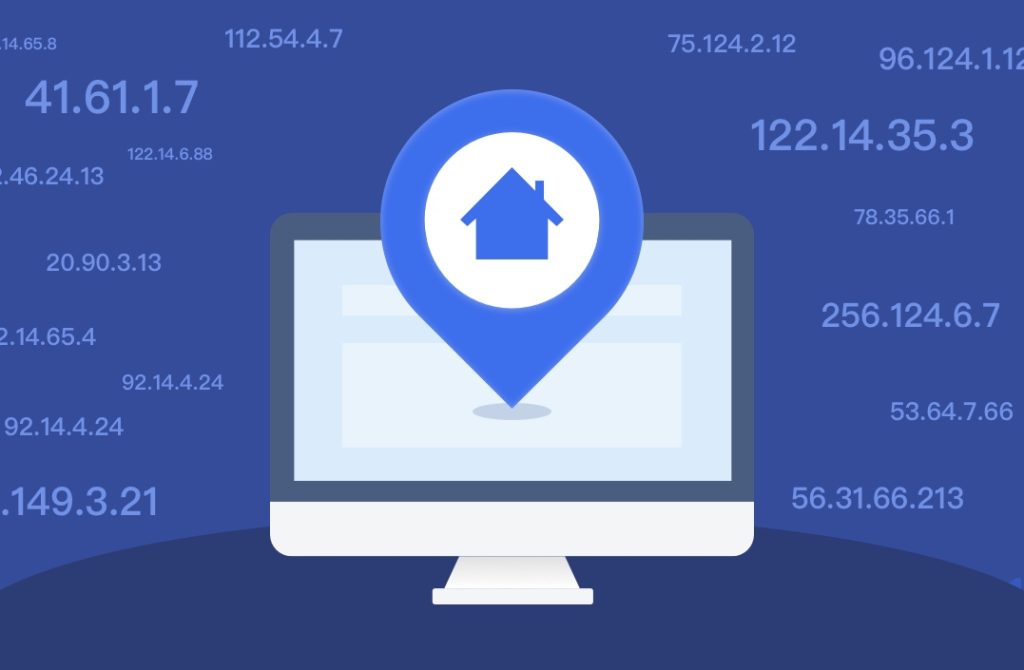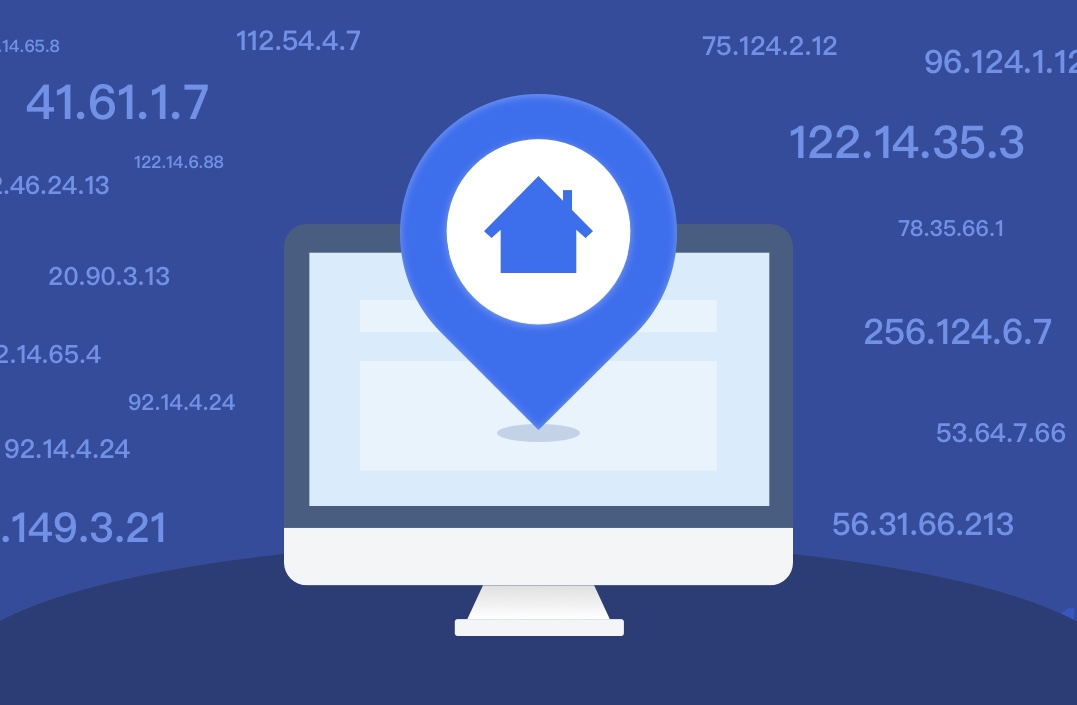Introduction
In today’s interconnected digital world, privacy and security are more important than ever. The moment you connect to the internet, your device is assigned an IP address, which serves as a unique identifier. While the primary purpose of an IP address is to help devices communicate over the network, it can also reveal a lot about you, including your location, the device you’re using, and your ISP (Internet Service Provider). This is where random IP addresses come into play.
A random IP address, by design, is an address that constantly changes, making it difficult for websites and third parties to track your digital activities. Whether you’re looking to enhance privacy, perform web scraping, access geo-restricted content, or protect your security, random IP addresses offer a wide array of advantages. Cherry Proxy is one of the leading solutions for effectively managing and utilizing random IP addresses.
This article will explore the potential applications of random IP addresses, show you how you can leverage them for various online tasks, and explain how Cherry Proxy can take your digital activities to the next level.
Understanding a Random IP Address
To fully grasp the potential of random IP addresses, it’s important to understand what they are and how they differ from static IPs.
Static IP Address:
A static IP address remains the same every time you connect to the internet. While this is ideal for services that require a consistent address, such as online banking or server hosting, it can also make you more vulnerable to tracking, hacking, and other privacy threats.
Dynamic (Random) IP Address:
A random IP address is one that changes periodically or with every session. This makes it much harder for websites or third parties to track your activities or determine your location. A random IP can also be assigned by a proxy server, ensuring that your real IP remains hidden.
There are two primary types of random IP addresses:
Residential Proxies:
These IP addresses are provided by ISPs and belong to real residential users. Because of this, residential proxies are harder to detect as proxies, making them ideal for maintaining anonymity and avoiding detection during tasks like web scraping.
Datacenter Proxies:
These IP addresses are hosted on servers in data centers and are typically faster and more affordable than residential proxies. While they are suitable for large-scale operations like web scraping and data crawling, they are more easily detectable as proxies.
By using random IP addresses from either residential or datacenter proxies, users can effectively mask their location, perform actions anonymously, and avoid detection during online activities.
What Can You Do with a Random IP Address?
Random IP addresses offer a wealth of possibilities for enhancing your online experience. Here are some of the most common and valuable uses:
1.Bypass Geographical Restrictions One of the most popular uses of random IP addresses is bypassing geo-restrictions. Many websites and streaming services restrict access to content based on the user’s geographical location.
By using a random IP address from a different region, users can unblock restricted content and access websites or services that are not available in their location. Whether it’s watching a movie on a streaming platform or accessing region-specific e-commerce platforms, a random IP address allows users to appear as if they’re browsing from a different country, granting them access to content otherwise blocked or limited.
This is especially useful for individuals traveling abroad who want to access their home country’s content, or for businesses conducting market research that requires localized content.
2.Enhance Online Privacy and Anonymity Online privacy is becoming increasingly difficult to maintain as more websites track user behavior. With cookies, IP-based tracking, and fingerprinting techniques, it’s easier than ever for advertisers, hackers, and other third parties to gather personal data. Using a random IP address helps obfuscate your true location and identity, making it difficult for websites to track your digital activities.
By regularly rotating your IP address, you can anonymize your browsing habits, ensuring that websites and trackers cannot build a comprehensive profile based on your IP. This provides an extra layer of protection for those concerned about privacy in an era of rampant online surveillance.
3.Perform Web Scraping Without Detection Web scraping, or the automated extraction of data from websites, is a valuable tool for businesses, researchers, and marketers. However, websites that are frequently scraped can detect high volumes of requests coming from a single IP address and block them. This is particularly common on e-commerce platforms, social media networks, and news sites.
By using a random IP address or a rotating proxy, web scrapers can avoid detection and continue gathering valuable data without interruption. Random IP addresses allow users to send requests from different IPs, mimicking natural user behavior, and helping to bypass rate-limiting and anti-scraping measures that many websites employ.
4.Increase Security Against Cyber Threats Random IP addresses can be an effective strategy for avoiding cyber-attacks. Many online threats, such as DDoS (Distributed Denial of Service) attacks, rely on targeting specific IP addresses. If attackers can identify your IP address, they can flood your device with malicious traffic, causing disruptions or system vulnerabilities.
By regularly rotating your IP address, you make it harder for attackers to target you consistently. For businesses or individuals handling sensitive data, this added layer of security is crucial. Protecting your network from IP-based attacks is an important defense measure, and random IP addresses help mitigate this risk.
5.Test and Verify Ads Across Different Regions Advertisers often need to test and verify their campaigns to ensure ads are displayed correctly across various regions. This is particularly important for international campaigns or businesses offering localized content.
By using random IP addresses from different countries or regions, businesses can simulate traffic from multiple locations and check if the ad targeting works as intended. This can help optimize campaigns, ensuring that ads are shown to the right audience based on their geographical location.
6.Avoid Account Bans and Detection Online platforms, particularly social media sites, online gaming platforms, and e-commerce services, may suspend or ban accounts that exhibit suspicious behavior. Frequently logging into accounts, performing repetitive actions, or accessing the platform from multiple devices can trigger security mechanisms that flag your IP address.
By using random IP addresses, you can avoid detection and continue accessing your accounts without facing bans or restrictions. Changing your IP address periodically helps you maintain a low profile, especially when performing actions like creating accounts, logging in from multiple devices, or engaging in high-frequency activities.
Cherry Proxy: A Leading Solution for Random IP Address Management
Cherry Proxy is a robust proxy solution that specializes in providing random IP addresses for a variety of online tasks. Whether you need to scrape data, access geo-blocked content, or protect your privacy, Cherry Proxy offers flexible and high-performance solutions to manage your IP addresses seamlessly.
1. Diverse Proxy Options
Cherry Proxy offers an extensive range of proxies to meet diverse user needs:
Residential Proxies:
These are ideal for activities that require a high level of anonymity. Residential proxies are less likely to be detected as proxies, making them great for bypassing restrictions and performing web scraping without getting flagged.
Datacenter Proxies:
For tasks that require speed and efficiency, datacenter proxies are perfect. These proxies are more cost-effective and faster but can be detected as proxies by some websites. They are perfect for large-scale tasks like scraping and accessing high-bandwidth content.
Rotating Proxies:
These proxies automatically change the IP address with every session or request, providing users with random IPs continuously. This is particularly useful for tasks that require frequent IP changes, like scraping or avoiding detection during sensitive browsing activities.
2. Global Coverage
Cherry Proxy’s network of proxies spans across multiple countries, offering users access to a wide range of local IP addresses. With proxies from numerous regions, you can easily simulate browsing from different locations, conduct geo-specific research, or access region-restricted content from anywhere in the world. Cherry Proxy’s global coverage ensures that users have the IP diversity needed to bypass content restrictions or conduct localized campaigns.
3. Security and Privacy
Security is a major concern for online activities, and Cherry Proxy addresses this through features like encrypted connections and IP rotation. By regularly rotating IPs, Cherry Proxy helps you maintain privacy and avoid detection, making it an excellent choice for users engaged in sensitive online activities such as browsing financial sites, conducting market research, or using online banking services.
4. User-Friendly Proxy Management
Managing random IP addresses can be complex, but Cherry Proxy’s user-friendly dashboard makes it simple. Users can easily configure IP rotation, monitor real-time proxy usage, and track performance metrics. The dashboard allows you to quickly customize settings for different types of tasks, from web scraping to geo-targeted marketing.
Real-World Applications of Random IPs and Cherry Proxy
Data Scraping and Competitive Analysis Web scraping is one of the most popular uses of random IP addresses. Whether you’re collecting competitor pricing, market trends, or customer sentiment from social media, Cherry Proxy ensures that your scraping operations run smoothly by providing a network of random IPs to avoid detection and blocking.
Unblocking Region-Restricted Content For users who want to access streaming services or websites restricted to certain countries, Cherry Proxy offers random IPs from a variety of regions, allowing you to easily bypass geo-restrictions and enjoy uninterrupted access to global content.
Ad Verification and Testing Marketers who run geo-targeted ads rely on random IPs to test the accuracy of their campaigns. Cherry Proxy’s residential proxies provide a diverse range of IP addresses, enabling marketers to verify if their ads are correctly shown to different regional audiences.
Enhancing Online Security Random IP addresses not only protect your privacy but also provide a layer of security against cyberattacks. Cherry Proxy’s IP rotation feature ensures that your digital footprint remains masked, preventing hackers from targeting you or your network.
Conclusion
Random IP addresses are an incredibly powerful tool for enhancing privacy, security, and accessibility online. Whether you are scraping data, accessing geo-restricted content, or just browsing with greater anonymity, random IPs provide a high level of flexibility and protection. With Cherry Proxy’s advanced solutions, including rotating proxies, residential proxies, and a global network, users can effectively manage random IP addresses for a wide range of online tasks.
Whether you’re a digital marketer, a business professional, or just someone concerned about online privacy, Cherry Proxy offers the tools and infrastructure to help you make the most out of random IP addresses. Unlock the full potential of your online activities with Cherry Proxy today.
FAQ
What is a random IP address?
A random IP address is an IP that is dynamically assigned or generated without a fixed pattern, often used for privacy protection, bypassing geo-restrictions, and avoiding IP bans. These addresses can come from dynamic IPs assigned by ISPs, proxies, or rotating proxies that change periodically to enhance anonymity. Businesses and individuals use random IPs for web scraping, automation, and secure browsing. Cherry Proxy offers reliable residential and rotating proxies, ensuring secure and anonymous internet access, making it an excellent choice for data scraping, gaming, and business operations.
What else is the IP address 127.0. 0.1 known as?
The IP address 127.0.0.1 is commonly known as “localhost” or the “loopback address.” It is used to refer to the local machine in networking, allowing a device to communicate with itself for testing and diagnostic purposes. This special IP is reserved and does not route traffic to external networks.


